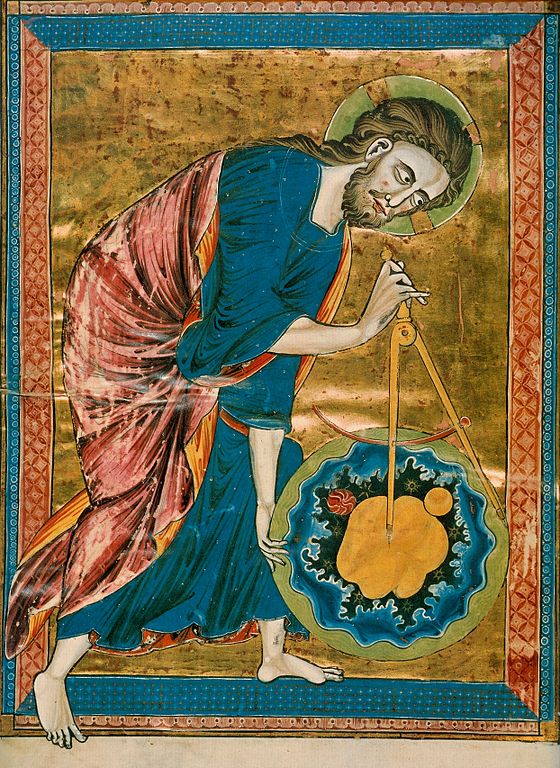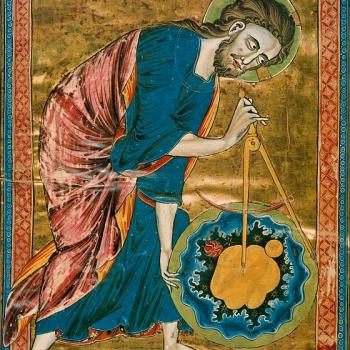
Atheist and anti-theist Bob Seidensticker runs the influential Cross Examined blog. He asked me there, on 8-11-18: “I’ve got 1000+ posts here attacking your worldview. You just going to let that stand? Or could you present a helpful new perspective that I’ve ignored on one or two of those posts?” He also made a general statement on 6-22-17: “In this blog, I’ve responded to many Christian arguments . . . Christians’ arguments are easy to refute . . . I’ve heard the good stuff, and it’s not very good.” He added in the combox: “If I’ve misunderstood the Christian position or Christian arguments, point that out. Show me where I’ve mischaracterized them.” I’m always one to oblige people’s wishes if I am able, so I decided to do a series of posts in reply.
It’s also been said, “be careful what you wish for.” If Bob responds to this post, and makes me aware of it, his reply will be added to the end along with my counter-reply. If you don’t see that at the end, rest assured that he either hasn’t replied, or didn’t inform me that he did. But don’t hold your breath. On 8-24-18 Bob wrote (after having virtually begged to dialogue with me back in May) that my alleged “disinterest in the truth reflects poorly” on me. What are we to make, then, of his utter “disinterest” in defending his opinions against serious critique?
Bob’s words will be in blue. To find these posts, word-search “Seidensticker” on my atheist page or in my sidebar search (near the top).
*****
In his article, “The Great Debate: Theism vs. Naturalism. Where Does the Evidence Point?” (11-17-16), Bob, in his infinite wisdom and profound biblical expertise, “informed” his readers:
Any scientific statement within the Bible that’s true was known by the culture that produced that part of the Bible, and all other scientific claims within the Bible are false.
As will see, Bob frequently thinks the Bible is making a “scientific” claim when it is not doing so at all. That’s one huge problem. If I say, for example, “the stars are twinkling” or “the tide is high” or “lions roar” or “boats float on water” I am not necessarily making scientific statements, but rather, pre-scientific observational ones (that a smart three-year-old could also make. This is what the Bible does as well. One can say all these things without understanding one whit about the science of astronomy, of light and light years, tides (i.e., a result of gravity), feline vocal chords, or buoyancy. Likewise, today we say, “I turned on the light” or “I started my car” without the slightest thought or knowledge of the workings of electricity or the internal combustion engine.
Bob links from his sentence above to another paper of his: “Yet More on the Bible’s Confused Relationship with Science” (11-30-15). This screed is a goldmine of stupefied non-comprehension of elementary biblical exegesis and hermeneutics. I’ve noted time and again that when atheists approach the Bible, they very often (almost always) assume that all interpretation of it is supposed to be woodenly literal and utterly simplistic as well. This leads them into all kinds of insuperable difficulties and they end up looking very foolish indeed (if they run across an actual Christian apologist who will expose their tactics). I think they usually do this based on one of the following two reasons:
1) They assume that the ancient Hebrews were a bunch of Neanderthal dolts, who couldn’t imagine such a thing as poetry or non-literal literary genre.
2) They follow (consciously or not) their own past fundamentalist Christian methods of highly flawed hyper-literalistic biblical interpretation.
I marvel at how often this occurs. Atheists seem almost constitutionally unable to undertake even a rudimentary study of hermeneutics, biblical genre, ancient near eastern / Mesopotamian culture, meanings of Hebrew words, consultation of many online commentaries for any given scriptural passage, or the use of a Bible dictionary, etc. Instead, they approach a Bible passage or theme, assuming that they are the “smart / sophisticated ones” and that ancient Hebrews and Christians en masse are troglodytes, imbeciles, and ignoramuses. Well, some Christians are quite undereducated, having been raised in vastly inferior strains of Christianity. But that is not all Christians. It’s only a small minority of a minority (Protestantism).
Atheists are either aware of these facts, in which case, they are deliberately bashing the straw man of fundamentalism and equating it with all of Christianity, or the best of Christian thinking: seeking out the worst cases of Christian thinking rather than the best, in their ongoing crusade to present a caricatured, warped version of Christianity to the world, to be mocked and ridiculed and dismissed.
The other possibility is that they don’t understand that fundamentalism does not equal Christianity, in which case, they are massively ignorant, both sociologically and in terms of Church history. Oftentimes, they were raised in these environments, and casually assume that they represent what Christianity is. In other words, they think anti-intellectual fundamentalism is the sum of Christianity. They rejected a gross distortion or stunted, miniscule version of Christianity, thinking that it was the Real Thing.
We will see how Bob — again and again — makes the fundamental mistake (no pun intended) of interpreting every passage hyper-literally, when there is no intrinsic need to do so, when the ones who wrote the passage clearly did not think in that way (nor did historic Christian exegesis), and where every exegetical or cross-referenced or linguistic indication is that the passage was not intended to be absolutely literal.
It’s the “dum-dum” approach: the ancient Hebrews were dumb, and so are Christians (so atheists blithely assume); thus, the Bible is a dumb and stupid document, only fit for mockery and not serious consideration. This leads atheists into all kinds of silly, inexcusable errors in approaching the Bible, as will become abundantly clear in our examples below. If we greatly underestimate our opponent (whether in military matters or in competing worldviews), we will fail and look silly to boot.
Thankfully, Bob manages to stumble upon an intelligent Christian (Augustine), writing about the Bible and science:
Augustine (354–430) rejected the quest for science in the Bible. He said, “We do not read in the Gospel that the Lord said, ‘I am sending you the Holy Spirit, that he may teach you about the course of the sun and the moon.’ He wished to make people Christians not astronomers.”
But many Christians ignore Augustine, and the flurry of claims continues.
Yes, and many atheists ignore him, too, along with folks like Galileo, who correctly observed that “the Bible teaches us how to go to heaven, not how the heaven goes.” If Bob would only understand that, he would do much better, but instead, he barges onward, doing the very thing that he just decried.
Let’s move on to . . . science claims within the Bible that don’t line up with what modern science tells us. Do they reveal startling insights into science, or are they simply the superstitions of primitive pre-scientific people? . . .
Let’s start with claims about cosmology and the structure of the earth.
1. The earth is immoveable
The world is firmly established, it will not be moved (Psalm 93:1; see also Ps. 96:10, 1 Chronicles 16:30).
Real science tells us that the earth is anything but fixed; it orbits the sun, the entire solar system orbits the galactic center, and the Milky Way galaxy itself moves through space.
Now let’s see what an actual Bible scholar teaches about such passages. Dr. Justin Rogers serves as an Associate Professor of Bible at Freed-Hardeman University. He holds an M.A. in New Testament from FHU as well as an M.Phil. and Ph.D. in Hebraic, Judaic, and Cognate Studies from Hebrew Union College-Jewish Institute of Religion. His superb and extremely helpful article, “Does the Bible Teach a Flat Earth?” (2017) explains, in wonderful detail:
A number of biblical passages assert the immovability of the Earth (e.g., 1 Chronicles 16:30; Psalm 93:1; 96:10; 104:5). . . . even if they might be cited as evidence for geocentricity, note that each of them occurs in a poetic context. . . .
Since each passage employs similar language and is applied for the same purpose, we shall examine just one as representative. The relevant part of Psalm 96:10 states, “The world is fixed; it cannot be moved.” Two Hebrew words in particular deserve attention. One is the word “fix” or “establish” (כון, kūn). This term does not fundamentally refer to being fixed in position, but rather to being fixed in permanence. Such can be said of David’s kingdom being “established” forever (1 Samuel 20:31; 2 Samuel 7:16; 1 Kings 2:12), or of cities that are “established” (Habakkuk 2:12). These are acts of intended permanence.
In reference to the physical world, the term is not used of the Earth alone, but of the heavenly bodies as well. The Sun, Moon, and stars “are established” by God (Psalm 8:3), as are the “heavens” (Proverbs 3:19). Does this mean the Bible envisions no movement among the heavenly bodies? If one took these passages literally, he or she would be required to say there are no orbits or movements of any astral body anywhere in the Universe. This is, of course, untrue, for even the earliest astronomers could map the stars and motions of the various heavenly bodies, as they serve to mark “seasons, days, and years” (Genesis 1:14). So, if these poetic passages are pressed literally, the Bible teaches that the Earth and all cosmic bodies are static. Is this what the Bible intends to communicate? Of course not. In fact, Scripture elsewhere affirms the movement of heavenly bodies (Jude 13). The Bible simply means to teach that God has programmed His creation to act according to determined, reliable patterns; in that sense, he has “fixed” the world. . . .
The Earth is “set” in the sense that it is well-designed and well-constructed, and therefore functions without deviation, exactly as the Maker intended. It is secure, dependable, and reliable. The season for sowing and reaping, consistent rain, the course of the astral bodies—these are all evidence that the Earth is “immovable” in the author’s intended sense. Derek Kidner appropriately observes: “The first and last lines of verse 10 [Psalm 96] make it additionally clear that this is a prophecy of perfect government, not a pronouncement on—of all things!—the earth’s rotation.” [Psalms 73-150: A Commentary on Books III-V of the Psalms in Tyndale Old Testament Commentary (Downer’s Grove, Illinois: IVP, 1975, p. 349) ]. . . . The “fixed Earth” Scriptures are best read as poetic reflections on a world designed for the flourishing of life.
2. The earth rests on a foundation
For the foundations of the earth are Jehovah’s; upon them he has set the world (1 Samuel 2:8; see also Ps. 102:25, Ps. 104:5, Zechariah 12:1).
We’re also told what this foundation is made of.
He shakes the earth from its place and makes its pillars tremble (Job 9:6; see also Job 26:11).
Apologists might say that “pillars” simply refers to mountains or bedrock, but a more plausible conclusion is that the literal interpretation was the intended one and that the Hebrew cosmology imagined a flat earth surrounded by or suspended on an ocean, as was popular in ancient Greece, Egypt, Mesopotamia, and India.
Baptist Bible scholar Bernard Ramm, in his classic work, The Christian View of Science and Scripture (Grand Rapids, Michigan: Eerdmans, 1954, 96-102: section on “Biblical Cosmology”), offers a reply to this silliness:
It is improper to construct a so-called modern or scientific cosmology from the Biblical evidence; and it is also improper to try to model one after Babylonian concepts. In that there is no systematic exposition of a cosmology in the Bible, and in that the Bible abounds with either popular expressions or poetic expressions, it is not capable of a systematic construction with reference to a cosmology. The best we can do is to (i) indicate the freedom of the Bible from mythological polytheistic or grotesque cosmologies; (ii) note the general hostility of the Bible to cosmologies which are antitheistic; and (iii) clearly present the theocentric view of the Bible towards Nature.
It is typical of radical critics to play up the similarity of anything Biblical with the Babylonian, and to omit the profound differences or gloss over them. When the Biblical account is set side by side with any other cosmology its purity, its chasteness, its uniqueness, its theocentricity are immediately apparent.
I wrote at length about many related issues of this sort, in my paper, “Flat Earth: Biblical Teaching?”
3. The sky is solid
The cosmology in Genesis makes clear that the earth rests between water underneath and more water in a dome above. We see this in the Noah story when “the fountains of the great deep burst forth and the windows of the heavens were opened” (Genesis 7:11). . . .
That dome must be solid to hold up the water. We also see this elsewhere in the Old Testament:
Praise him, you highest heavens and you waters above the skies (Ps. 148:4).
When He made firm the skies above, when the springs of the deep became fixed (Proverbs 8:28).
What is this dome made of? Job suggests that it’s made of metal:
Can you, with him, beat out the skies, strong as a mirror of cast bronze? (Job 37:18)
“Beat out” (“spread out” in some translations) is the verb used for hammering out metal.
Dr. Ramm refutes this inane, fatuous nonsense, too:
The cosmology of the Bible is not systematized and is not postulational. It is neither for nor against any of the current and ancient theories of the universe except where they might be polytheistic or in conflict with basic Christian metaphysics. But the Bible does not support Aristotle or Ptolemy or Copernicus or Descartes or Newton or Einstein or Milne . . . it gives us no positive cosmology.
We must consider the efforts of radical critics to impose a cosmology on the Bible as an artificial, stilted, and abortive effort.
. . . [William Fairfield] Warren claims that their approach to the cosmology of the Bible is so wooden, artificial, and literal that the Bible writers would not recognize such a cosmology if it were handed them all written out on a piece of paper. If, he continues, you follow this wooden and artificial approach to the Bible you would have the Bible writers believing in a heaven made of wax or silk or goatshair! [The Earliest Cosmologies, 1909, pp. 24-32]
. . . Orr writes:
The error is to be avoided of forcing the language of popular, often metaphorical and poetic description, into the hard-and-fast forms of a cosmogony which it is by no means intended by the writers to yield. [“World, Cosmological,” International Standard Bible Encyclopedia, V, 3106]
. . . Gaenssle, a Semitic scholar, takes the radical critics to task likewise for imposing on the Bible a stilted, artificial cosmology that is nowhere clearly and systematically taught in Scripture [“A Look at Current Biblical Cosmologies,” Concordia Theological Monthly, 23:738-749]. He singles out two basic ideas of this reconstruction of the radical critics to show that their contentions are baseless. (i) He examines the word raqia (firmament) which critics have taken to mean a solid something and indicates that its basic idea is that of thinness or tenuity. Citing Isaiah 40:22, Psalm 104:2 and Isaiah 34:4, he asks:
Can anyone with these texts before him seriously and honestly believe that the writers of these words entertained the crude inept notion of a metallic canopy above their heads? [Footnote 38: Ibid., p. 743 . . . the greatest Hebrew scholar of the fifteenth century, Paginus, writing well before modern science translates raqia by expansionem]
The best meaning of raqia is expanse or atmosphere. (ii) He also attacks the notion that the world floats on a vast subterranean ocean . . . As for the word under in the phrase “under the earth” the Hebrew word tachath means not only under but lower. In our own day we speak of lowlands . . . :
Consequently, when the earth is said to be founded on the seas and spread out upon the waters, there is no reason to assume that the Psalmist is singing of an invisible ocean on which the earth rests or is spread out, but only of earthly waters on which the earth touches and over which it is elevated.
. . . The upper, terrestrial ocean satisfies all requirements and it lies below or beneath in the same sense as the Dead Sea lies under Mount Pisgah and the land of Moab. [Ibid., p. 747, 749]
4. The earth is flat
We’ve seen a flat disk of earth before.
[God] sits above the circle of the earth (Isaiah 40:22).
Our previous analysis showed that this is no reference to a spherical earth (they had another word for “ball” or “sphere”) but simply a flat disk.
Nonsense. See my paper on the falsely alleged biblical assertion in a flat earth. Dr. Rogers also makes mincemeat of this:
One notices instantly that almost every passage cited in favor of the flat-Earth position occurs in a poetic context. To be responsible readers of the Bible, we must respect the genre of literature we are reading. Poetry is to be read differently than prose; it is more expressive, emotional, and metaphorical. . . . a common-sense understanding of how poetry functions prevents us from making erroneous interpretive deductions. To insist that metaphorical language must be interpreted literally is to contradict the original authorial intent. . . .
[W]e cannot locate a single verse in the Bible that teaches the Earth is flat. Neither in prose nor in poetry, neither by means of phenomenological language nor metaphor, do we find Scripture communicating a flat Earth. The flat-Earth theory is an interpretive deduction, usually based on poetic hyperbole. But is a flat Earth even an accurate interpretive deduction? As we will see, it is far from obvious that the Bible teaches the Earth is flat. . . .
[S]uch a literal reading [of Isaiah 40:22] ignores the poetic context and the obvious anthropomorphism. . . . the ancient Greek translation renders the term γῦρος (gūros), or “ring.” Further, the term “on” (על, ‘al) can also be translated “above,” without implying contact with an object (e.g., NASB, ESV). So this passage does not necessarily communicate a spherical Earth, but neither does it imply a flat Earth. . . .
Again, these passages occur in poetic contexts, and it can be dangerous to impose a literal meaning on figurative language, as we have discussed. Unlike God, Job’s friends [Job 22:14; 26:10; 37:18] did not necessarily have a perfect scientific understanding, and are, in any case, speaking hyperbolically in Hebrew poetry. Their words simply reflect a popular expression of God’s complete sovereignty over nature. Nevertheless, one thing is sure: there is no thought of a flat Earth anywhere. The “circle of the earth” is a metaphor to be sure, but not even metaphorically is it understood as flat.
It should be noted that the Hebrew Bible does not have an equivalent for the term “sphere,” which in modern Hebrew is the loanword ספירה (sefîrāh). The word “ball” (דור, dūr) occurs in English translations in Isaiah 22:18, but it is clear from Isaiah 29:3 (the only other place the noun occurs) that it refers to a “roll” of items that have encircled a central object. A related verb form is found one other time in the Bible to describe stacked and perhaps “bound” wood (Ezekiel 24:5). In other words, the shape of such an object is beyond the scope of the term. So, the authors of the Hebrew Bible simply lacked the vocabulary to describe a perfectly round object. We cannot expect them to say what they did not have the words to communicate.
We also find other clues:
And there was evening, and there was morning, the third day (Gen. 1:13).
The six-day creation story assumes a flat earth because a time reference would’ve been necessary on a spherical earth. To see this, suppose God began creating the plants in the morning on Day Three based on the time in Mesopotamia. This means that God began this project in the evening of Day Two in much of the rest of the world (western North America, for example). Only with a time standard (“according to Mesopotamian Standard Time”) would this be unambiguous. . . .
6. Confused creation order
God created the earth and land plants in the first three days, but the sun wasn’t made until the fourth. Photosynthesizing plants obviously couldn’t survive without the sun.
Compare the order of creation in Genesis with the order we’ve learned through science. In Genesis, it’s first earth, then land plants, sun and moon, fish, birds, land animals, and finally humans. Science instead tells us that the evidence points to the sun being first, then the earth, then the moon. Single-celled organisms were the only life for several billion years. Then photosynthesizing organisms, then land plants, fish, land animals, and finally birds. But Genesis is right that humans came last—yay.
This is absurd, based on reasons already given, as to the Bible’s view of the earth and cosmology. Secondly, it’s well-known that Christians since at least St. Augustine have interpreted “day” in these passages (Hebrew yom) as not confined to a 24-hour period. As usual, Bob merely assumes without argument that “day” here must be a literal 24-hour day. This is not the case at all. St. Augustine wrote:
The narrative does indeed tell us that light was created by God, and that God separated that light from the darkness, and gave to the light the name of ‘day’, and to the darkness the name of ‘night’. But what kind of light that was, and with what alternating movement the distinction was made, and what was the nature of this evening and this morning; these are questions beyond the scope of our sensible experience. (City of God, translated by Henry Bettenson, edited by David Knowles, Baltimore: Penguin Books, 1972, 436, Book XI, ch. 7)
Furthermore, Bob interprets the Genesis accounts as both 1) absolutely literal in all respects, and 2) chronological (in the sense that we view sequential chronology today). Neither is necessarily the case at all. I delve into this question at length, citing scholars writing specifically about Hebrew thinking and views of time, in my paper, “Genesis Contradictory (?) Creation Accounts & Hebrew Time.”
We also find a flat earth in the New Testament.
The devil took [Jesus] to a very high mountain and showed him all the kingdoms of the world and their splendor (Matthew 4:8).
A high spot to see all the world is possible on a flat earth but not on a spherical planet. And consider that a mountaintop from which you could see everywhere on the earth could itself be seen from everywhere on earth. So go outside and look around. It’s there—the claim that it’s on the horizon somewhere is as reliable as the Bible itself.
Give Bob an E for effort, anyway . . . But what wasted brain power! Once again, Bob engages in his relentless wooden hyper-literalism, when the text does not at all require or even suggest it. Barnes’ Notes on the Bible comments on this passage:
All the kingdoms of the world – It is not probable that anything more is intended here than the kingdoms of Palestine, or of the land of Canaan, and those in the immediate vicinity. Judea was divided into three parts, and those parts were called kingdoms; and the sons of Herod, who presided over them, were called kings. The term “world” is often used in this limited sense to denote a part or a large part of the world, particularly the land of Canaan. See Romans 4:13 [RSV: “The promise to Abraham and his descendants, that they should inherit the world, . . .”] where it means the land of Judah; also Luke 2:1 [“In those days a decree went out from Caesar Augustus that all the world should be enrolled.”: obviously meaning the Roman Empire], . . .
Likewise, atheists and fundamentalists alike assume that the Bible teaches a literally universal Flood, covering the whole world. This is not true, either, as I explain in my paper, “Old Earth, Flood Geology, Local Flood, & Uniformitarianism.” The Bible doesn’t require the Flood (an actual historical event, as indicated several times in the NT) to have been literally global, as we see in the treatment of the Flood in The Catholic Encyclopedia of 1913. That’s another case where an atheists sees the word “world” and automatically assumes that it literally means the entire earth or world. It’s simply more woefully inadequate biblical exegesis.
5. The earth is at the center of not just the solar system but the universe
Here’s another verse we’ve seen before that makes clear that the sun moves around the earth.
The sun rises and the sun sets; and hastening to its place it rises there again (Ecclesiastes 1:5; see also Ps. 19:6).
Really? This is beyond ludicrous: descending to a level of cluelessness rarely observed, even among atheists who regularly butcher the Bible. Of course this is phenomenological language, which the Bible routinely uses, and which we ourselves use today (in the very same manner), all the time. Watch any weather report and you will hear words like, “the sun will rise at 6:02 tomorrow morning; it will set at 8:30 . . .” According to how Bob interprets the Bible, then, every weather reporter and anyone who says “I saw the sun rise” or “the sun will be going down pretty soon” and similar terminology, is asserting geocentrism. As that is obviously absurd, so also is his contention here. Now why couldn’t he figure that out?: is the question and the marvel. Dr. Rogers comments:
In addition to respecting the author’s intent, we must also respect the audience’s understanding. We often hear cosmic complexities expressed in phenomenological language. In other words, the world is explained as it appears on Earth, or in terms we can understand. Even today, we speak of the Sun “rising and setting,” even though virtually every fourth-grade science student knows that, scientifically, this is not the case. Thus, it should not surprise to find the Bible speaking in similar terms (Genesis 28:11; Joshua 10:13; the Hebrew idiom is the Sun “going”). . . . For God to teach modern scientific astronomy and meteorology to an ancient Hebrew audience would do little good. . . . To hold the Bible’s language to modern scientific standards is a failure to appreciate the original audience of Scripture. The authors were divinely inspired, but the audience was not.
Two more examples are when God played games with the sun, stopping its motion for hours so Joshua could continue killing Amorites (Joshua 10:13) and then moving it backwards to give a sign to King Hezekiah (2 Kings 20:8–11). It’s no big deal for God to move things across the sky, but it gets complicated in a heliocentric solar system when “stopping the sun” actually means stopping the earth’s rotation.
Could God have used magic to stop the earth’s rotation so that its inhabitants didn’t notice the deceleration and subsequent acceleration (and report it in the biblical accounts)? Could he have maintained the earth’s protective magnetic field that would’ve been lost if the molten iron core stopped rotating? Sure, but why imagine that instead of the heliocentric solar system known to science since the early sixteenth century?
This is an exceedingly involved discussion, with equally devout Christian commentators holding to several different theories, and this article is already lengthy enough, so I will defer to an extremely in-depth treatment: Glenn Miller’s article, “What about ‘The Fivefold Challenge’?” Readers — after following the link — need to do a word search to get to the relevant section: “Miracle Two: The stopping of the sun by Joshua.” Glenn is delightfully thorough and comprehensive in his reasoning, as always. It’s a feast for Bible students, and perhaps at least some challenge and food for thought for skeptics like Bob.
Suffice it to say in summary that several of the theories do not entail stopping the earth’s rotation or movement around the sun, etc., and posit far less “cosmologically dramatic” events. This is common in biblical interpretation: reasonable folks can have honest disagreements. But what Christians have in common is an approach to the Bible of high respect, rather than the goal to mock and ridicule, distort and dismiss it: as seen over and over in Bob’s endless anti-Christian, anti-biblical rhetoric and sophistry.
***
This is the 21st installment in my series of critiques of Bob’s arguments. I note that (to my knowledge) he has not made the slightest response to any of them, despite having initiated a challenge that I record in my Introduction above. If he has responded at all, he certainly didn’t make me aware of it; nor did any of his fan club, who love to mock and deride Christians and Christianity as much as he does. It looks, then (at least so far), that Bob is either afraid or unable to defend his own viewpoints against strong critique. One would never guess that, judging by his ostensibly “confident” and “triumphalistic” attitude in his articles. But there it is . . .
***
See my web page: Philosophy, Science & Christianity.
See my book: Science and Christianity: Close Partners or Mortal Enemies? (Oct. 2010, 301 pages; only $2.99 as an e-book)
***
Photo credit: God as Architect of the Universe (c. 1220-1230): frontispiece of Bible Moralisee. Science: particularly geometry and astronomy, was linked directly to the divine for most medieval scholars. The compass is a symbol of God’s act of creation. He created the universe after geometric and harmonic principles. Therefore, to seek these principles was to seek and worship God. The Lutheran heliocentrist astronomer Johannes Kepler (1571-1630) stated that his scientific work was “thinking God’s thoughts after Him.” [public domain / Wikimedia Commons]
***



























